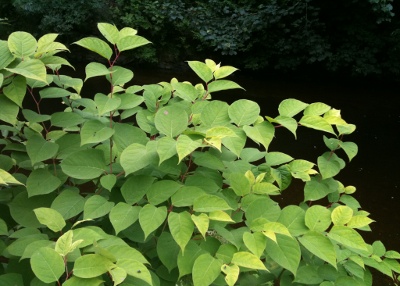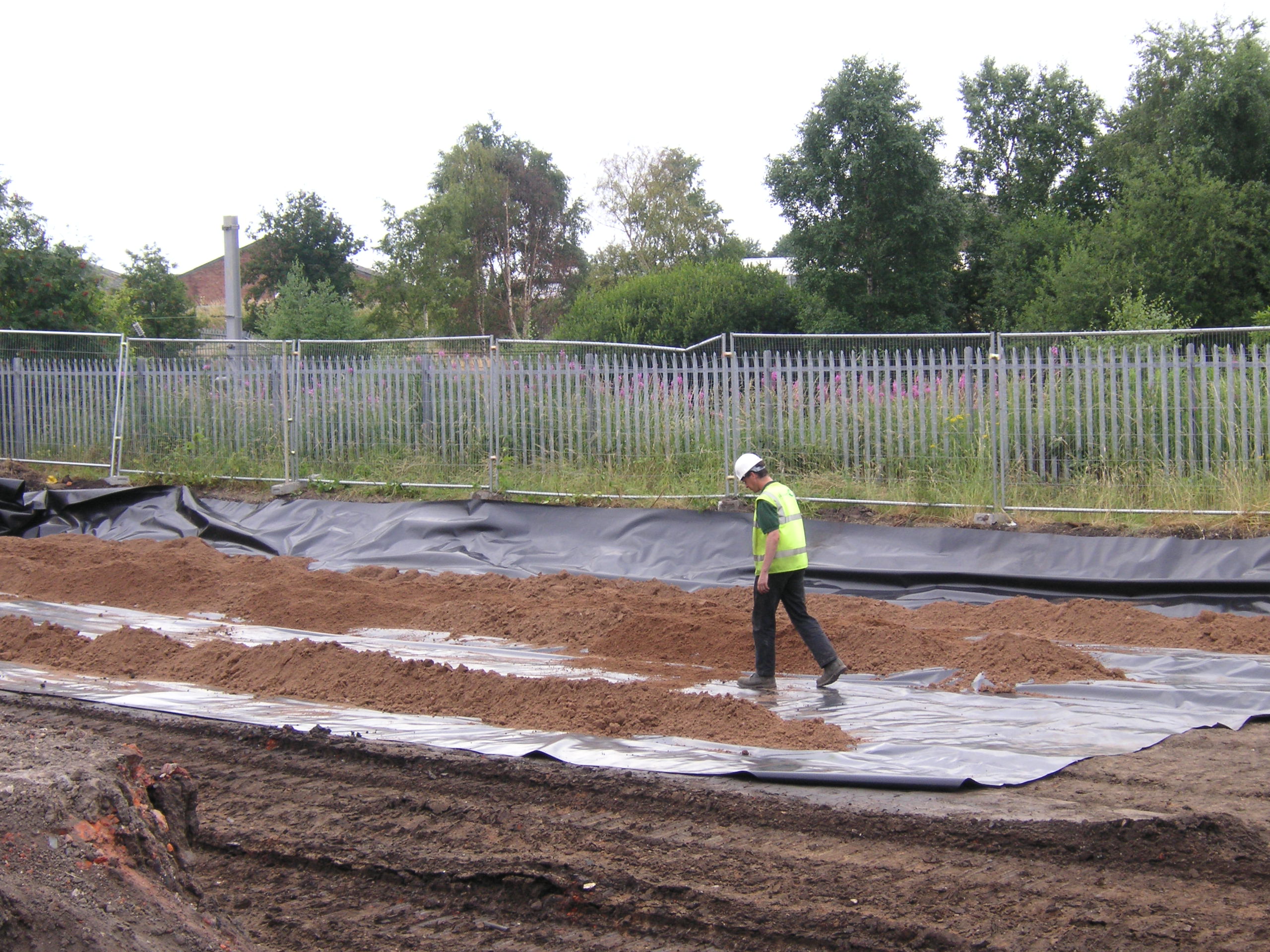Seller lied about Japanese knotweed: What are your options?
04-04-2022
Last updated 08-03-2023
If you’ve recently purchased your property and now suspect that the seller lied about Japanese knotweed and it is present on the property, this blog post has been written to lay out your options, based on our experience managing Japanese knotweed for residential clients throughout Great Britain and surveying and providing expert witness reports for solicitors and the courts.
Is it actually Japanese knotweed?
Before looking at the options, our first recommendation will be to confirm the plant is Japanese knotweed. This can be done easily by emailing photos of the suspected plant to our team to identify Japanese knotweed or consulting our guide to plants that are often mistaken for Japanese knotweed. It is also advisable to have a qualified Japanese knotweed specialist surveyor attend the property. The benefits of having a surveyor visit the property are that they may be able to fully survey the whole garden and see other examples of Japanese knotweed that may have been missed, such as winter canes or old crowns, which can give a better idea of the area and treatment history.
What happens if a seller lies about Japanese knotweed before the sale?
If a seller misrepresents the presence of Japanese knotweed on the property they are attempting to sell, then they are likely to find themselves on the wrong side of a civil claim. There are many case law examples from the county courts where sellers have been caught out like this. The damage costs can be large, so this is best avoided.
Can I sue the seller if they lie about Japanese knotweed?
There are many case law examples where sellers who have misrepresented the presence of Japanese knotweed on a property have been successfully sued in the county courts.
What can I do if the seller lied on the TA6 form?
If a seller has lied on the TA6 form about the presence of knotweed on the property they are selling, then there are legal precedents showing that they could be sued. The sanctions for lying can include large damage costs, so it is foolhardy to consider doing this.
What happens if the information on the TA6 was correct when completed by the buyer but then incorrect when I purchased the property?
If you are unsure as to the legal basis on which you might be considering making a claim against a seller whose information might not be correct on the TA6 form, then you should seek the guidance of your conveyancing solicitor. It might be that the assistance of a specialist knotweed solicitor is needed.
What happens if I buy a house with Japanese knotweed?
If you entered a property transaction with your eyes open to the presence of knotweed, then it is doubtful you will have any legal recourse. However, if you did not know about the knotweed beforehand, then you should discuss this revelation with a specialist knotweed solicitor.
What can I do if I discover the seller has lied after the sale has been finalised?
You should seek the advice of a lawyer that has experience dealing with claims of misrepresentation where a seller has lied about the presence of Japanese knotweed on a property they are selling.
Misrepresentation
If you believe that the seller has lied about Japanese knotweed on the TA6 form then you, as the buyer, may have a claim for misrepresentation.
For further information about the legal procedure from here, we’d advise you speak to either your solicitor during the purchase, or a solicitor who specialises in Japanese knotweed and misrepresentation, as they can advise you on the process.
In our experience, their initial recommendation is to have a Japanese knotweed specialist survey and provide a letter report detailing the location and extent of the Japanese knotweed, and any other matters that may be relevant, including off-site sources of Japanese knotweed, and potential examples of concealment.
Depending on your conversation with the solicitor then your options include:
1. Discuss the Japanese knotweed with your neighbours.
This may help build up site history on the management of knotweed. If, for example the seller had ticked ‘not known’ on the TA6 and the issue had been discussed with the neighbour, there may still be a case of misrepresentation.
2. Bring a claim in the county court against the seller for misrepresentation.
A big step, but if successful this could lead to being awarded financial compensation for: the damages of diminution in value of the property, which would aim to reflect the value of the property, had the seller disclosed the presence of Japanese knotweed prior to purchase; and / or for the cost of returning the property to being Japanese knotweed free, which was the property, free of Japanese knotweed, you had thought you were buying.
The second of these would likely involve the excavation and off-site removal of Japanese knotweed and can be very costly and potentially cause a great deal of disturbance. But would be recommended if there was to be any works, such as an extension or re-landscaping planned for the area of Japanese knotweed, as herbicide treatment alone will not be suitable.
3. Get a specialist involved for treatment.
Japanese knotweed removal costs can vary from around £2-3,000 for a Herbicide Treatment and Monitoring Programme to thousands, and possibly tens of thousands of pounds if the knotweed is to be excavated. Any Japanese knotweed treatment should be with a member of an accredited trade body (such as the Property Care Association) and come with a 10-year Insurance Backed Guarantee to demonstrate that the Japanese knotweed is being treated in a professional manner. Then, should you wish to sell, you can confidently tick the yes box, and provide further details on the TA6 form.
4. Do nothing, and treat the Japanese knotweed yourself.
This is not recommended, but included as it is technically an option. We’d strongly recommend against this as you could then have difficulties when you come to sell the property yourself. Also if mismanaged in the meantime, the Japanese knotweed could spread more on your property, and if near a boundary, then spread off-site, potentially an offence under the Wildlife and Countryside Act 1981, as amended.
Also, if you do decide to treat the Japanese knotweed yourself and require a PCA member to provide a treatment programme at a later date, they may not be able to help if there is no Japanese knotweed for them to treat.
5. Negotiate
If the seller has likely misrepresented the Japanese knotweed – and ‘I didn’t know it was Japanese knotweed’ is not a defence as by marking ‘no’ they made a definitive statement that their property was not affected by Japanese knotweed – they will likely not want to go to court either.
So when presented with a thorough and informative survey from a Japanese knotweed expert they may be convinced that paying for the costs of the Japanese treatment is the preferred option. Rather than disputing the claim in court and potentially including the court costs along with the remediation and diminution in value costs in with their charge.
If the options above seem daunting, please contact us for an informal chat, we can also provide a list of solicitors we know to be experts in the legal issues surrounding Japanese knotweed.
Image Credit: Jens Neumann



